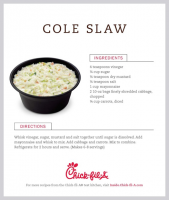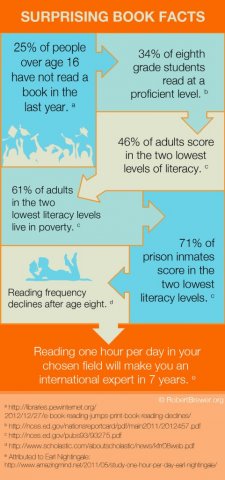At Thanksgiving, my sister (thank you!) alerted me to the massive fraud going on in the olive oil business. I did a bit of investigating, and discovered a few things I knew, and a few I didn't. Since I've only recently come to appreciate extra virgin olive oil (EVOO), I don't know much, though from research into other products (such as honey) I know that "made in..." or "imported from..." on the label doesn't necessarily tell you the source of the important ingredients.
I didn't know that when buying EVOO you should look for a harvest date on the bottle. Not a "best buy" date, but a harvest date. I'm so used to super-processed oils that I didn't think about olives as fruit, and the importance of freshness to minimally-processed oil. Then I noticed that the bottle of EVOO in my pantry had no harvest date at all.
I'm still using oil from that bottle, hoping its likely adulteration won't poison me. But I did find a brand in the grocery store that not only has the date, but is more local as well, being from California. We'll see how it tastes—not that my palate is good enough at this point to tell the fake from the real thing. But it is one of the brands that passed the test (California Olive Ranch).
Last night a 60 Minutes report confirmed the problem and provided a credible explanation: the Italian Mafia has found a lucrative, legitimate business they can leverage by nefarious means into huge profits. Nor is olive oil the only food they have their dirty fingers in. The show is definitely worth watching (under 15 minutes), if only to see the olive oil experts testing the wares. But if you're in a hurry, you can read the transcript. And here's an extra that was not part of the show: How To Buy Olive Oil.
Ohh, looking at that bread drizzled with fresh olive oil ... now I'm hungry.
I've reached the end of the first year of my 2.5-year 95 by 65 project, and I'm thrilled. It has given structure and focus to my work, helped me set priorities, and provided joy in activities that I have in the past seen as distractions.
In 2015, I completed 25 of my 95 goals. Others I'm well on the way to finishing, and still others I haven't even started. Some of those I completed were one-time events: check it off, done! The completion of most, however, hasn't gained me any time, since it has been the catalyst for creating new habits. That's a good thing: it's part of the point behind the 95 by 65 project. But hasn't left a vacuum to fill with work on the remaining goals.
If there's any downside to this project, it's that I have enough other goals to create a new 95 list. Some of them need to be done anyway, even if they're not on the list. The others I'm thinking of accumulating on an overflow list. I don't want to distract myself from working on this one, but after all, Goal #31 is "Create another goal-oriented project for when this one is over."
Completed In Progress
- To Live
- Create 95 by 65 list—Completed 1/24/15
- Create the Leon Project—Completed 1/12/15
- Create/tweak/finalize/codify 60 family recipes
- Develop and sustain a system for making bread regularly [I know what to do, and have all the equipment, but need to make it a habit.]
- Develop and sustain a system for making yoghurt regularly [Again, I know what to do, and have all the equipment, but need to make it a habit.]
- Experiment with making kefir
- Finish Janet's birthday 2009 recipe book
- Go through all recipe books, digitizing what looks good, getting rid of all but essentials/favorites
- Complete a biking challenge (details to come)
- Complete a swimming challenge (details to come)
- Walk/run the equivalent of home to Hillsboro, NH—Completed 12/16/15 [But I haven't stopped; I'm now working on the much longer trip to Emmenbrücke, Switzerland.]
- Design 5 Life Playground stations [I'm nearly done with this, it just needs some tweaking.]
- Develop a stretching plan and execute at least 3x/week for a month
- Execute 50 pushups nonstop on the higher bar at the park [This was sidelined by an injury, but I'm slowly coming back.]
- Find a GPS distance tracker that works for me—Completed 11/11/15
- Practice deliberate relaxation twice a day for a month—Completed 5/16/15. [Frustration: This is definitely a habit worth keeping. But I lost it in June, during my month in Switzerland, and haven't managed to reclaim it. My hope is to revive the habit in 2016.]
- Reach my desired weight goal [Ever. So. Slowly. Not giving up.]
- Run nonstop 3 times around the park trail then participate in a 5K race (any speed) [Barring injury, I should be ready for the 5K soon. I could probably do it now, but have some other interim goals I want to meet first.]
- Declutter and organize phone
- Declutter blog template files
- Declutter computer
- Declutter garage
- Declutter marked items in Janet's room
- Declutter my office
- Declutter our filing cabinets (with Porter)
- Declutter sewing supplies
- Develop a quick system for travel prep and packing
- Recycle collected ink cartridges [I know this looks easy, but I'm trying to do it in a way that I use the credit I get for recycling them. I miss the easy 1 cartridge = 1 ream of paper days!]
- Research and purchase food processor—Completed 1/30/15.
- Set up identification system for files to grab in an emergency
- Create another goal-oriented project for when this one is over
- Create an herb garden
- Get a working back porch sink
- Attend 15 live performances (e.g. music, drama, lectures) [Just one more to go!]
- Convert our Christmas card system to postal + e-mail—Completed 12/5/15
- Refrain from negative speech for 1 day. Do this 30 times. (Since sometimes negative things must be said, this will include recasting negative things in a neutral or positive tone.) [This is so much harder than you'd think. I've managed six days so far. It has at least increased my awareness, helped me clarify what I really mean by "negative," and inspired me to hold my tongue on occasion.]
- Share at least 20 meals with others (home or restaurant, but not counting multi-day visits or shared meals already in place)—Completed 8/13/15 [But of course this continues.]
- Try at least 5 new restaurants—Completed 4/10/15 [Clearly I set this goal 'way too low; I'm up to 18 now.]
- Visit Universal/IoA four times—Completed 5/15/15 [Dr. Doom's Fear Fall, fish & chips and butterbeer! We did not renew our passes, but were then inspired to get annual passes to Disney World for this year.]
- Watch NCIS LA from the beginning—Completed 10/23/15
- Watch Unbroken—Completed 4/24/15. [Worth watching, though it doesn't do justice to the book.]
- Join in the choir trip to Austria [This had been planned for 2015, but fell through. Will it happen at all?]
- Visit a country I've never been to
- Visit a state I've never been to—Completed 4/9/15. [Missouri—St. Louis. Great visit with family. New museums, new restaurants, and a genealogy breakthrough.]
- Visit with all immediate family members at least once per year [Complete for 2015.]
- Visit Arizona
- Visit either Costa Rica or the Gambia
- Visit King Arthur Flour—Completed 2/12/15
- Keep up a 10 posts/month blogging schedule for 20 months (not necessarily consecutive) [Modified from "two posts/week" to make record keeping easier. Twelve months complete so far (60%).]
- Send at least 4 care packages to each of our freshman nephews [25% done]
- Write an encouraging note each month to someone other than family [12/12 so far. This turns out to be one of the more challenging goals, not because it's hard to write the notes, but because I have to remember before the end of each month. I didn't give myself any leeway with this one.]
- Write at least 10 letters to political officeholders [Only one so far.]
- Write at least 5 notes of encouragement to each nephew
- Write at least 75 physical letters to children/grandchildren
- Join Google+—Completed 12/10/15
- Join Twitter—Completed 2/9/15
To Love
- To Learn
- Finish chronological Bible reading plan—Completed 7/29/15
- Start and complete other daily Bible reading plans—Completed 11/25/15 [I'm currently on my fifth plan (of varying lengths) since beginning this project.]
- Achieve 40,000 DuoLingo points (average 1,000/month, split between French and German)—I'm 'way ahead of schedule on this one—Completed 11/3/15 [This was successful in establishing the habit; I'm now over 45,000 points.]
- Listen to all of Pimsleur German I—Completed 5/30/15 [The next step is German II, but I haven't started yet.]
- Complete George MacDonald reading plan (50 books, 14 completed in 2014) [60% done]
- Read 130 books (new or old, print or audio, any level) [55% done]
- Read 26 existing but as yet unread books from my bookshevles [35% done]
- Read The History of the Renaissance World
- Read the Koran—Completed 4/14/15
- Complete 100 Great Courses lectures—Completed 12/30/15
- Experience all 37 of Shakespeare's plays (attend, watch, and/or read) [30% done]
- Learn sufficient Javascript and/or jquery to know if it will work for creating my GTC website
- Make 30 museum visits [40% done]
- Set and attain BrainHQ goal
- Set and attain Khan Academy goal
- Set and attain Memrise goal
- Set and attain Sporcle goal
- Copy LPs to CDs
- Copy tapes to CDs [Porter is working on this]
- Convert WRL memorial PPT to video
- Complete conversion of bits PPTs to videos
- Create 20 new GTC shows
- Create a form of GTC independent of YouTube and useable offline
- Create scent bits
- Make new family bits (was just "for Heather," but now Janet needs some, too)
- Print bit back labels for Heather
- Genealogy: clean up, expand, and document the lines I currently have in my family tree
- Enter unentered genealogy data
- Publish revised editions of Honor Enough volumes 1-4
- Rocket boost genealogy work by end of January 2015 (40 hours of work in segments of 1 or more hours, over 2 weeks)—Completed 2/1/15 [I made great progress, but I need to make a habit of steady progress.]
- Update Phoebe's Quilt and print in "final" form
- Create one photo album with Picaboo
- Digitize photos
- Digitize slides
- Organize photos 2007-2011 (subgroups 2007, 2008, 2009, 2010)
- Organize photos 2012-2016 (subgroups 2012, 2013, 2014, 2015) [I've done most of 2015 and a good part of 2014 so far.]
- Research and purchase scanner suitable for prints and slides
- Rocket boost photo work (40 hours of work in segments of 1 or more hours, over 2 weeks)—Completed 8/29/15 [As with the genealogy, I made great progress, but I need to make a habit of steady progress.]
- Make (at least) 2 baby blankets—Completed 5/14/15. [Two new grandbabies! Hooray!]
To Leave a Legacy
Onward to 2016!
It's no secret I love Chick-fil-A. I've never worked there myself, but friends who did in high school found it a good, supportive place to work.
I love that they are successful while maintaining their Sundays-off policy, even though I'm frequently frustrated on road trips because Chick-fil-A is my favorite fast food restaurant and we're often travelling on a Sunday. If Chick-fil-A can do it, more companies could if they tried: I grew up with most businesses closed on Sundays, and that's still the case in Switzerland, where store hours are much shorter than here. You learn to adjust.
These things wouldn't matter much if the food weren't good, but their Spicy Chicken Sandwich and Spicy Chicken Biscuit are the best I've had anywhere—and that's not for want of trying elsewhere.
If I've ever tried their cole slaw, I don't remember it, which may be part of the reason they're taking it off the menu. But some people like it as much as I like their spicy sandwiches, so I'm pleased to report that the company has done something else right: When they announced the end of cole slaw as an option at their restaurants, they published their recipe, so we can make it at home. (Click to enlarge.)
I wish other companies would do the same when discontinuing products.
Happy New Year, everyone!
And Merry Christmas, again, for it is still Christmas until Epiphany on January 6. We're up to maids-a-milking, if you're keeping count.
On New Year's Eve Afternoon, we went out to do a few errands: to the library to pick up The Road to Character by David Brooks, a book recommended by our rector; to Staples where we accomplished nothing except discovering that our magic (corporate) credit card no longer gives a discount (boo!); and then to Steak 'n Shake for the supposed highlight of the trip, a half-priced Speculoos Cookie Butter milkshake!
The milkshake was all we could have wanted, but that it was worth waiting nearly an hour for is questionable. It seemed that half the world was at Steak 'n Shake, and the other half was on the roads. The traffic was ... I was going to say unimaginable, but we could well imagine that it would be yet worse at night, with half the drivers drunk, and therefore were very glad to be planning a quiet evening at home.
Lo and behold, 2016 came in just fine without me being awake to welcome it. I guess the world doesn't revolve around me after all.
I went for a swim on the last day of 2015, and again on the first day of 2016. That's a first for me: our pool is screened and well-shaded and has never in my memory been so warm at this time of year. If you live in Florida long enough, you get used to surprises from the weather. Last week the water temperature was 72 degrees (the year-round temperature of our freshwater springs), but today had climbed to an unbelievable 75. Today's high is predicted to be 86 degrees, but this may be the peak: tomorrow is supposed to be 20 degrees cooler.
May your 2016 be blessed with love, joy, peace, patience, kindness, goodness, faithfulness, gentleness, and self-control. (See banner above.)
Permalink | Read 2281 times | Comments (0)
Category Everyday Life: [first] [previous] [next] [newest]
Having finished YouVersion's Cell Rule of Optina read-through of the New Testament by Thanksgiving, and planning to start a new chronological plan at the end of the year, I wanted something short to take me through Christmas. I chose Before the Cross: the Life of Jesus, which was billed this way: "This 80 day reading plan takes you through the four Gospels, in chronological order, walking through the life of Jesus from His birth to His ascension into Heaven." That's almost true, though they did leave out some of the less action-oriented passages. I easily compressed the 80 days into one month.
I also switched versions of the Bible for this reading. My favorite versions are either the old New International Version or the old Revised Standard Version, neither of which is often accessible in online form. I had been using the English Standard Version on my phone, which is a little modern for me but not bad. This time I decided to try the New King James Version. I'd heard a lot of positive talk about the NKJV, but I was not impressed. I was expecting a reworking of the beautiful-but-outdated King James Version that takes into account all we've learned in the field of Bible scholarship since the early 1600's. Maybe it's not outdated anymore, I don't know—but I do know it's no longer beautiful. Why produce yet another Bible stripped of its poetic language? We had plenty of those already.
Now that I've finished the Before the Cross plan, I've committed to another year-long chronological plan. Not the chronological plan I started with; that was a great one, but why not try another one, since there isn't completely agreement on chronology? This is called Reading God's Story: One-Year Chronological Plan, and this time I've chosen to use the Holman Christian Standard Bible.
I'm still gung-ho about the YouVersion system. Granted, most of their reading plans are not what I'm looking for (too short, too slow, too embellished, too disjointed), but I still find what I need. And having it right there, on my phone, easy to access, easy to keep track of—priceless.
I'm not Englebert Humperdinck. I'm not Michael Bolton. But <ahem> last night I sang with the amazing Ashley (Locheed) Tessandori! Don't ask about the venue or the size of the audience, just let me bask in the reflected glory.
Permalink | Read 2178 times | Comments (0)
Category Everyday Life: [first] [previous] [next] [newest]
My random quotation generator greeted me with this when I turned the computer on this morning:
May no gift be too small to give, nor too simple to receive, which is wrapped in thoughtfulness and tied with love. - L. O. Baird
Merry Christmas to all!
Permalink | Read 2015 times | Comments (0)
Category Random Musings: [first] [previous] [next] [newest] Everyday Life: [first] [previous] [next] [newest]
I did some last-minute grocery shopping this morning, realizing that my normal day for that event (Friday) was out of the question this week. Boy am I glad I didn't go later in the day—it was crazy enough as it was.
Before I even put the groceries away I checked my e-mail, which contained a Christmas greeting from Publix, our grocery store. I like it so much I have to share it with you.
Permalink | Read 2152 times | Comments (2)
Category Everyday Life: [first] [previous] [next] [newest]

I know it's Advent, and we're still waiting for Christmas. But that's the header for our Christmas newsletter. This year we revamped our system for Christmas cards, sending more than half of them out by e-mail. I'm concerned that some folks may have gotten lost in the upgrade.
So if you did not receive our Christmas letter, and would like to, please let me know.
Permalink | Read 1979 times | Comments (2)
Category Everyday Life: [first] [previous] [next] [newest]
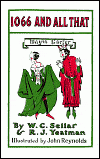
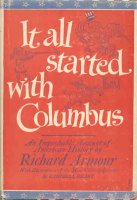
1066 and All That: A Memorable History of England by W. C. Sellar and R. J. Yeatman (Barnes and Noble, 1993, original 1931)
It All Started with Columbus: An Improbable Account of American History by Richard Armour (McGraw-Hill, 1953)
Attention teachers and parents: Next time a child whines, "Why do I have to learn history?" you are free to use my answer. "So you will be able to understand why these books are funny."
They are funny, and clever to boot, but without a solid grounding in history, and some literature as well, you're not likely to get the jokes. As poor as my knowledge of history is, I'm confident I know more about British history than most Americans; even so, a good bit of 1066 and All That left me scratching my head.
It went better with It All Started with Columbus, which does the same thing for American history, a subject on which I am still apallingly ignorant but at least savvy enough to get most of the jokes. It doesn't cover as many years, America having less history than England, but unlike the British book, it gets past World War I. Not much past, however. I wonder if anyone's written a sequel to either of the books.
I think Armour was the better writer, but that may just be the influence of my greater familiarity with his subject. Armour pays homage to his inspiration in the book's dedication:
Humbly dedicated, in an attitude of gratitude, to Walter Carruthers Sellar and Robert Julian Yeatman, who wrote the wonderful 1066 and All That
From 1066 and All That:
The Scots (originally Irish, but by now Scotch) were at this time inhabiting Ireland, having driven the Irish (Picts) out of Scotland; while the Picts (originally Scots) were now Irish (living in brackets) and vice versa. It is essential to keep these distinctions clearly in mind (and verce visa).
From It All Started with Columbus:
[Benjamin Franklin] was self-educated, which means that he was too poor to go to school and therefore got a good education.
My 95 by 65 Goal #11 was initially a "to be decided later" walking challenge. Yesterday I decided it was about time I set that up, and determined that it would be fun to aim for the distance between here and our family in New Hampshire. The "crow flies" distance is 1130 miles. Since the middle of 2014 I've been letting my phone keep track of the steps I've taken (walking or running). That's only if I have the phone on me, so the recorded numbers are lower than my actual steps, but quite good enough for this purpose.
The app keeps track of the raw data, but not in a form useful for "walking to New Hampshire," so today I set up a spreadsheet to analyze the data, starting from the beginning of this year, and keep track of my progress as I head for the goal.
SURPRISE! I'm already there! I arrived two days ago.
It blows me away to realize how much I've walked in under a year. I guess small steps do make for great progress over time.
Continuing the trip to "visit" our other grandkids adds 3747 "crow files" miles and involves walking on water. I guess I'd better get going!
A friend shared this on Facebook. (Click to enlarge; you'll see later why I want to keep it small.)
I'm not criticizing the sharer, nor the original post, because the ideas this image suggests are valid. But I was inspired mostly to comment and to ask questions, beginning with: Where do these facts come from? I'm not going to answer that one yet, because what I found pretty much makes my other comments unnecessary, and I like them, so I'm going to give them first.
- Since approximately two-thirds of high school graduates attend college (and therefore presumably read some books), this implies that the people who don't graduate from high school but later enjoy reading are very rare. Whether or not it's true, it makes sense for the here-and-now, though not in other times and places.
- That forty-two percent of college graduates never touch a book again I find less believable. This is a population that presumably enjoys learning—unless they went to college solely because they bought into the fallacious idea that it would guarantee them high-paying jobs.
- Fifty-seven percent of new books are not read to completion? Hmmm. I suspect that 57% of new books aren't actually worth reading to completion, so I'm not sure this is a bad thing.
- Define "been in a bookstore." I've read 67 books so far this year, but I can't tell you the last time I was in a bookstore. When they closed our local Borders, that pretty much sealed my relationship with Amazon.com. Even before that, the local bookstores almost never had the books I was looking for. Now if they asked me how often I've been in a library in the past five years, that would be an entirely different story.
- Define "buy a book." Does that mean only physical books? If so, it's disingenuous to leave out e-books. Likewise, buying a book is not a particularly lofty goal in my mind (though I've spent a fortune on them); I'm a big fan of libraries. On the other hand, this statistic says that 80% of families did not buy or read a book. So there's another question:
- Define "family." There are about 50 million children in American public elementary and secondary schools, which is more than 15% of the entire population, and a much greater percentage of "families" of even the most generous definition (i.e. including any two or more people living together, with or without children). And it ignores all students in private and home schools, as well as college students. No matter what they do at home, each of these students must have in the last year read not just one but several books (or been read to, for the non-readers). So even stretching the definitions out of all reality, I can't make sense out of the 80% figure.
- And the last one? Reading an hour a day in one field makes you an expert in seven years? I wish! Seven years times 365 days per year is a mere 2,555 hours of reading.
Okay, I've said all that because that's what's currently going around Facebook. But my first attempt at investigation—from squinting at the fine print at the bottom—led me to this page on Robb Brewer's website. There he abjurs "any and all connection" to the statistics in the original graphic, and requests that if people are going to publish it, they use this one instead (again, clicking will enlarge the image):
I didn't check these statistics, because Mr. Brewer clearly did. Except for the last one, which he kept for its feel-good value.
And yes, I had a thousand better things to do than critique a Facebook graphic. OCD takes many forms.
Actually—there really ought to be a word for "daughter's in-laws."
That Phil and Barbara were involved in a protest back in the day doesn't surprise me. But I had no idea they made the New York Times!
Here's the update almost thirty years later.
Permalink | Read 2279 times | Comments (0)
Category Children & Family Issues: [first] [previous] [next] [newest] Everyday Life: [first] [previous] [next] [newest]
A friend shared this picture on Facebook. I have no idea where it came from, and it's not very Christmasy, but it sure is clever.
Permalink | Read 1951 times | Comments (0)
Category Just for Fun: [first] [previous] [next] [newest]
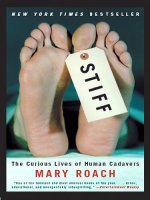 Stiff: The Curious Lives of Human Cadavers by Mary Roach (W. W. Norton, 2003)
Stiff: The Curious Lives of Human Cadavers by Mary Roach (W. W. Norton, 2003)
This was another gift from my library-book-sale-scrounging sister-in-law, who does an amazing job of finding books I like. This one I doubt I'd have picked out on my own, but it was fascinating reading. Best of all, Mary Roach is an excellent writer. I'd reckon not many people could write about such a gruesome topic with respect, accuracy, and humor.
The hardest chapter to read was on cannibalism, especially about the consumption in China, "for medicinal purposes," of aborted babies. Wanting to find out if this was true or an anti-Chinese urban legend, the author investigated and was told that it used to be true, but the government had subsequently declared the practice of selling aborted babies illegal. Further investigation revealed, however, that the reason for the ban was so that the government could hold a monopoly on the business....
The chapter on head transplants was nearly as disturbing, and reminded me strongly of C. S. Lewis's That Hideous Strength, which was written in 1945 and shows the influence of early experiments in the field.
The most interesting and informative chapter was on the use of forensic analysis to help determine the cause of an airplane crash. Analysis of remains helps determine if a bomb was involved, and if so where it was placed (how fragmented are the bodies, and what is the pattern of embedded shrapnel?), if the plane was hit by a missile (what parts of the bodies were burned?), and where the plane broke apart (which bodies were clothed, and which nude?). As I suspected, the purpose of all the airplane safety lectures is to help with near-ground crashes. Break up in midair and, as Roach puts it, you've booked your final flight. The kinds of problems that cause a plane to rip apart high in the sky are simply not survivable.
Take-off and landing crashes are potentially survivable 80 to 85 percent of the time. However...
The key word here is "potentially." Meaning that if everything goes the way it went in the FAA-required cabin evacuation simulation, you'll survive. Federal regulations require airplane manufacturers to be able to evacuate all passengers through half of a plane's emergency exits within ninety seconds. Alas, in reality, evacuations rarely happen the way they do in simulations. "If you look at survivable crashes, it's rare that even half the emergency exits open," says [injury analyst Dennis] Shanahan. "Plus, there's a lot of panic and confusion." Shanahan cites the example of a Delta crash in Dallas. "It should have been very survivable. There were very few traumatic injuries. But a lot of people were killed by the fire. They found them stacked up at the emergency exits. Couldn't get them open." Fire is the number one killer in airplane mishaps. It doesn't take much of an impact to explode a fuel tank and set a plane on fire. Passengers die from inhaling searing-hot air and from toxic fumes released by burning upholstery or insulation. They die because their legs are broken from slamming into the seat in front of them and they can't crawl to the exits. They die becajuse passengers don't exit flaming planes in an orderly manner; they stampede and elbow and trample.
The secret to surviving in such a situation? Sitting close to an exit is number two, but the most important, statistically, is to be male. I guess "women and children first" only works on ships, where chivalry has time to overrule our basic survival instinct.
Cadavers are useful for more purposes than people think when they nobly declare, "I want to donate my body to science": from anatomy class, to surgery practice, to automobile safety labs (crash test dummies can only go so far), to research on the most practical and ecological ways of disposing of bodies (intended to inform funerary practices, not murderers seeking to hide evidence). They're also used to analyze the effects of weapons of war, and I include the following for its Swiss reference:
Theodore Kocher, a Swiss professor of surgery and a member of the Swiss army militia (the Swiss prefer not to fight, but they are armed, and with more than little red pocket knife/can openers), spent a year firing Swiss Vetterly rifles into all manner of targets ... with the aim of understanding the mechanisms of wounding from bullets.
And one more, to show the kind of humor with which Ms. Roach lightens this difficult subject.
Our conversation has moved from White's lab to a booth in a nearby Middle Eastern restaurant. My recommendation to you is that you never eat baba ganoush or, for that matter, any soft, glistening gray food item while carrying on a conversation involving monkey brains.

